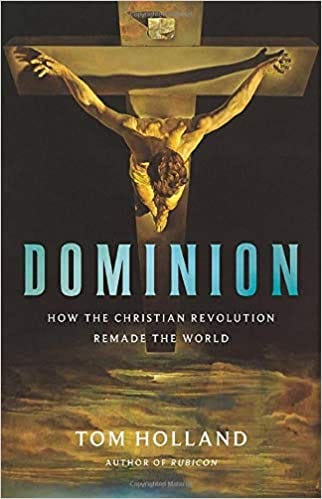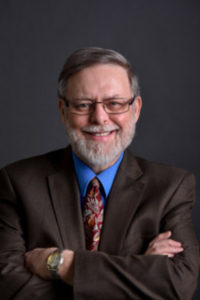
Longing for Faith
Tom Holland’s, Dominion: The Making of the Western Mind  (Basic, 2019), is an impressionistic romp through 2000 years of Western history by a person who knows enough about the subject to make it interesting and enjoyable. The book is divided into three parts: Antiquity, Christendom and Modernity. Whether Holland is conscious of it or not, this division serves to highlight the similarities between pagan antiquity and neo-pagan modernity and make Christendom appear superior to both. Yet, he is ruthless in exposing the violence, evil and exploitation that characterized Christendom. So how can I say that it comes out looking better than what preceded and what followed it? The answer is very simple, but profound.
(Basic, 2019), is an impressionistic romp through 2000 years of Western history by a person who knows enough about the subject to make it interesting and enjoyable. The book is divided into three parts: Antiquity, Christendom and Modernity. Whether Holland is conscious of it or not, this division serves to highlight the similarities between pagan antiquity and neo-pagan modernity and make Christendom appear superior to both. Yet, he is ruthless in exposing the violence, evil and exploitation that characterized Christendom. So how can I say that it comes out looking better than what preceded and what followed it? The answer is very simple, but profound.
Holland is relentlssly honest and clear-eyed in understanding that the very criteria by which we condemn the violence of the Wars of Religion or the excesses of the Inquisition themselves arise out of the same Christianity that dominated that period of history. Both pagan antiquity and modernity demonstrate the same human sin – exploitation of the poor by the rich, violence as a way of gaining power, injustice, etc. – but the difference is that Christianity contains within it a morality by which evil can be named and sin can be condemned.
The Nature of Reality
Pagan antiquity had no concept of human rights whatsoever. Thus, in discussing Bartolome de Las Casas’ attempt to protect the native people of Latin America from exploitation, he knows that what the Spanish did was no different from what the Romans of antiquity did in building their empire and no different from what the Nazis of modernity did in building their empire. What was different was that the Church could and did invoke the doctrine that all human beings are made in the image of God and have the same rights. No one before or after Christianity can make such an argument and expect it to have any effect. The difference Christianity makes is not that it erases all traces of original sin from the culture that embraces it, but rather that it makes it possible to see the difference between how things have always been and how they must change to conform to God’s law and the nature of reality. This is the only possible basis for progress. Progress, thus, requires Christianity.Progress, thus, requires Christianity. Click To Tweet
Western culture is certainly guilty of great evils such as the slave trade. But it is also the first major culture in recorded human history to abolish slavery. The former should not be excused, but the latter must be taken into account. Holland is fair and honest in evaluating the history that has shaped us as Westerners and in an age of ideology and propaganda, this is something for which to be thankful.
Holland puts his finger on the crisis we are in today. He knows that everything he values including democracy, human rights, freedom, equality, tolerance, and justice is just a secularized form of Christianity, yet he is unsure if the fruits of Christianity can survive the withering of Christian faith in the modern world. So many shallow thinkers today blithely assume that you can eat the cow and keep drinking milk too. He knows this is facile and struggles to comprehend whether or not the morality introduced into the world by Christianity can survive the decline of faith.
The Faith of Christendom
Holland’s discussion of Darwin is poignant, and he understands that the logical connection between the thought of Darwin, Nietzsche and Hitler is real and sobering. If Christianity is true and the world is God’s creation, then why is there so much cruelty and waste in nature? This is the real problem with Darwinism and logically it implies that a moral system that protects the weak against the strong cannot be anything more than a pious illusion. Pious illusions will not defeat totalitarian dictators bent on conquest. This troubles Holland, as well it should. One might ask, does Hitler represent the future? Was the defeat of fascism in World War II just a temporary setback in the big picture? No question could be more important for a secular age. Is it our fate for the future history of the world increasingly to resemble that of pagan antiquity?So many shallow thinkers today blithely assume that you can eat the cow and keep drinking milk too. Click To Tweet
One sign of Holland’s acuity is that he gives proper recognition to the importance of J. R. R. Tolkien’s great work as central to understanding the twentieth century. The idea of history as a “long defeat” as we await the return of Christ is an Augustinian one that has become as relevant in our period of the decline of the West as it was in Augustine’s period of the decline of the Roman Empire. No shallow triumphalism about the inevitable march of progress and science for Holland. Instead, sadness over the loss of beautiful things and the corruption of goodness and the decline of truth. I respect his sadness and share it.
What is Truth?
But what is truth? Pilate’s question has never ceased to reverberate down through the centuries. And Jesus’s answer has never changed. Holland deserves credit for facing this question more honestly than most and his answer is worth exploring.
By the end of the book, Holland seems to come to the point of acknowledging that Christianity is “true myth.” Tolkien wanted Lord of the Rings to be seen as invented history, but he wanted it to be recognized as, in some sense, true. Yet, he did not mean “true” as in the “real prehistory of Europe” or some such thing. He was a “sub-creator,” that is, a creator of a fictional world in which the structure of Reality was accurately presented. In that sense, Lord of the Rings is true. It is true in that, as fiction, it reflects Reality truly. Holland appears to want to see Christianity as true in this same sense. However, there is a fly in the ointment. In that sense, the Lord of the Rings is true. It is true in that, as fiction, it reflects Reality truly. Click To Tweet
Tolkien was a sub-creator, not the Creator. He was working under the constraints of a world made by another into which he was born and which he was powerless to change. Unlike the mythmakers of the ancient Near East, who received their myths from gods, Tolkien’s conception of reality came from the Bible. Tolkien’s greatness was that, unlike the gods of ancient religion, he did not rebel against the True Story of special revelation – but embraced it. Unlike them, he bowed before the transcendent Creator of the universe and believed the narrative given in Genesis to correct the false myths that underlay the pagan religions of blood sacrifice, sacral kingship and sympathetic magic. Tolkien’s invented history operates on the basis of the same universals as our history does: the Good, the True, and the Beautiful. Good and evil are the same. Virtue is the same. In Tolkien’s sub-creation we see the texture and shape of our world all the more clearly, which is why it is morally good and a means of sanctification for readers.
But if Darwin is right, is the cosmos really what the Bible says it is? Is it really the good creation of a good Creator? Are goodness, truth and beauty more than just pious illusions?
True Myth
When C. S. Lewis became a Christian, he first came to believe that Christianity was true myth, but he was not yet converted. He also had to come to the place where he accepted that the myth had become fact in the person of Jesus Christ. Only then was he a Christian. Tom Holland is half-way home, but he is not there yet. May he come to see that Christianity differs from all the other myths because it is not only a beautiful story, but also the true story of the world.
Darwin’s myth, like those of the ancient Near Eastern cultures around Israel, is a partial truth that functions as a lie. The myths of the ancient Near East always left out what it recounted in Genesis 1:1. They started with chaos and told a story of the gods bringing order out of the chaos by violence. The unformed matter must be conquered and beaten into shape. The calm and peaceful “And God said . . . and it was” is nowhere to be found in these myths. The gods take credit for making the cosmos into its present orderly form and demand worship in return. In so doing they usurp the place of Yahweh.When humans aspire to be gods they end up worshiping demons. Click To Tweet
Darwin’s myth begins similarly with unformed, chaotic matter and substitutes Random Chance for the anthropomorphic gods of ancient paganism. But the key move is the same, which is to elide the role played by the true Creator of the cosmos. Darwin’s myth opens the door to the self-deification of the human race as the true Creators, as Lewis’s novel, That Hideous Strength, depicts. As Lewis shows, for all their “scientific sophistication” the people at NICE were just dupes manipulated by demonic forces. When humans aspire to be gods they end up worshiping demons. This is a lesson written all over the Bible.
Tolkien and Lewis understood well that Christianity being the True Myth entails it being factually true and not just a lovely illusion. Was Jesus Christ really God come in the flesh? It all hinges on whether that is true or not. If it is, then Holland’s search for the True Myth can come to rest on the Rock that is Christ.

